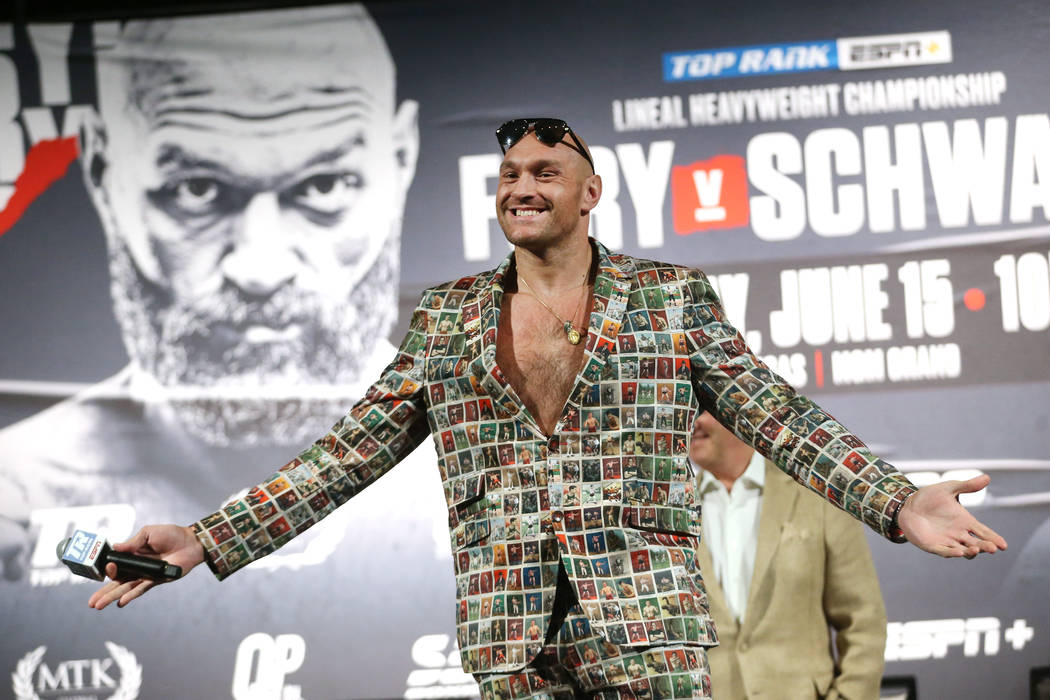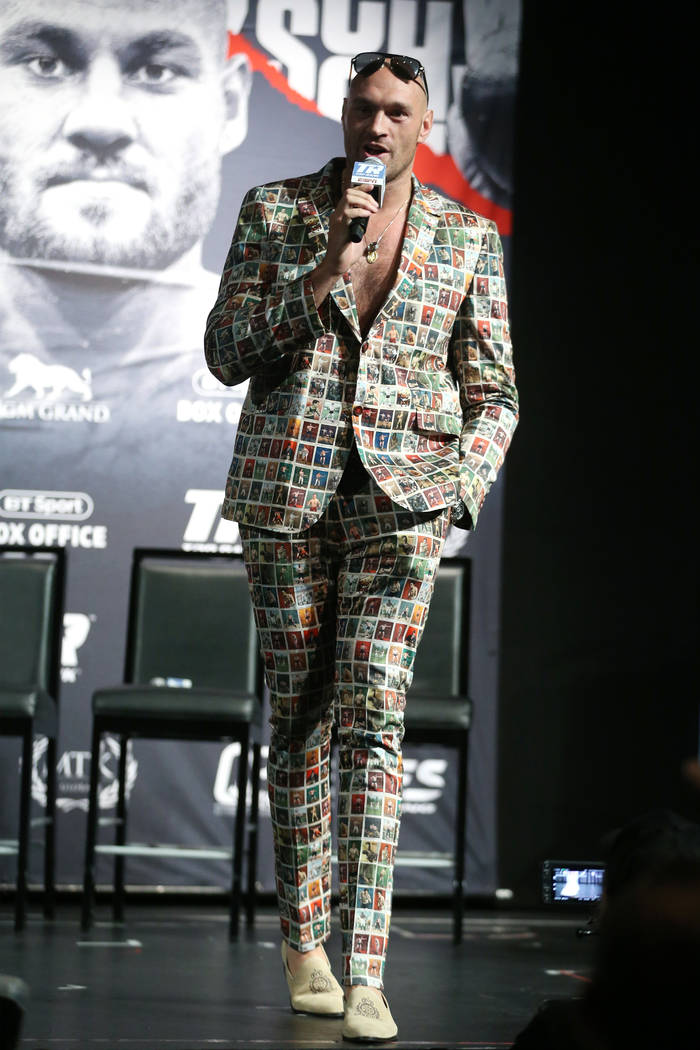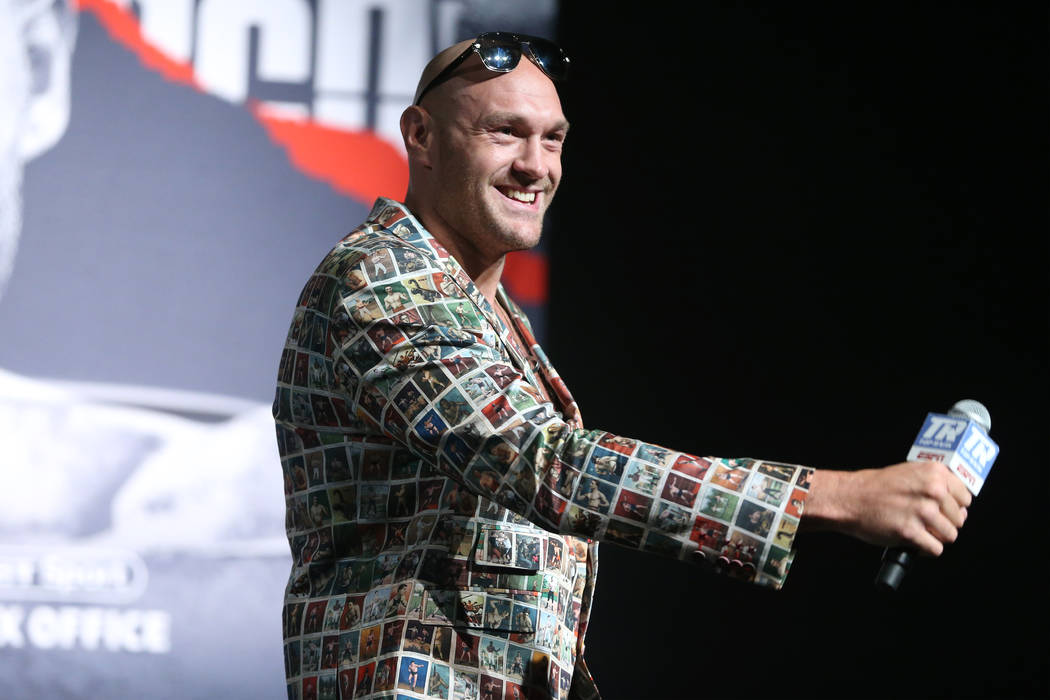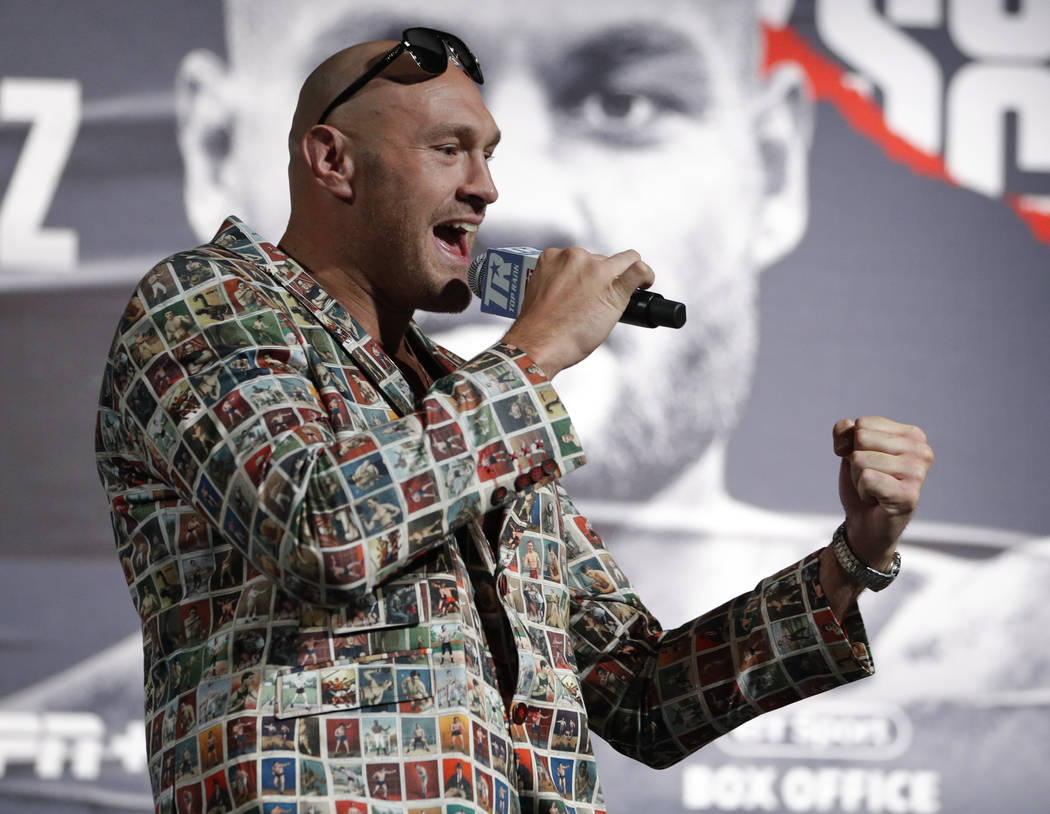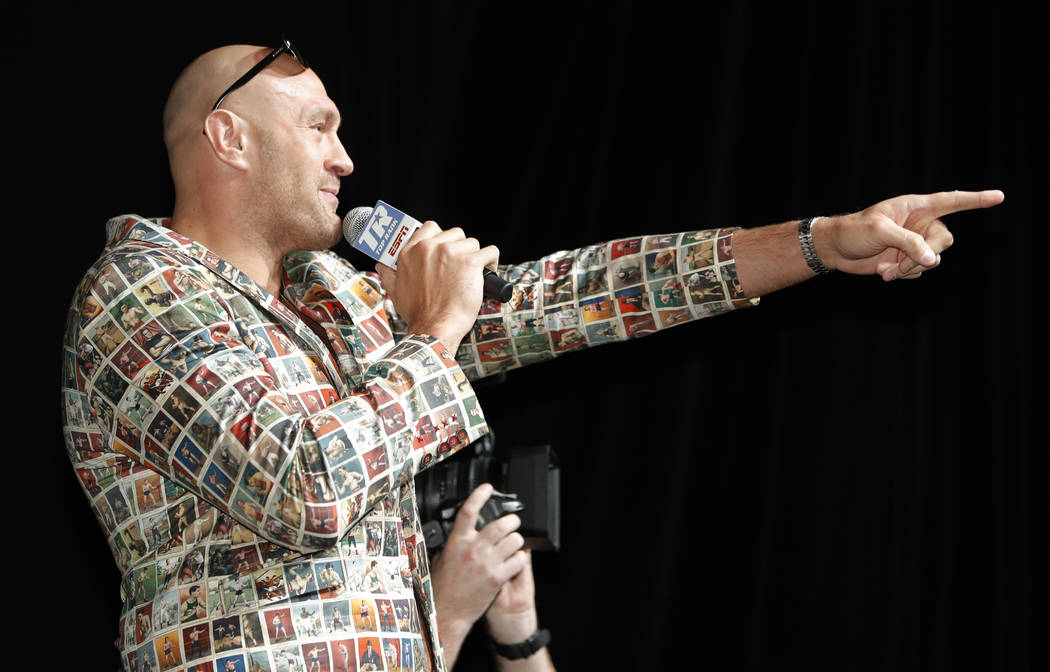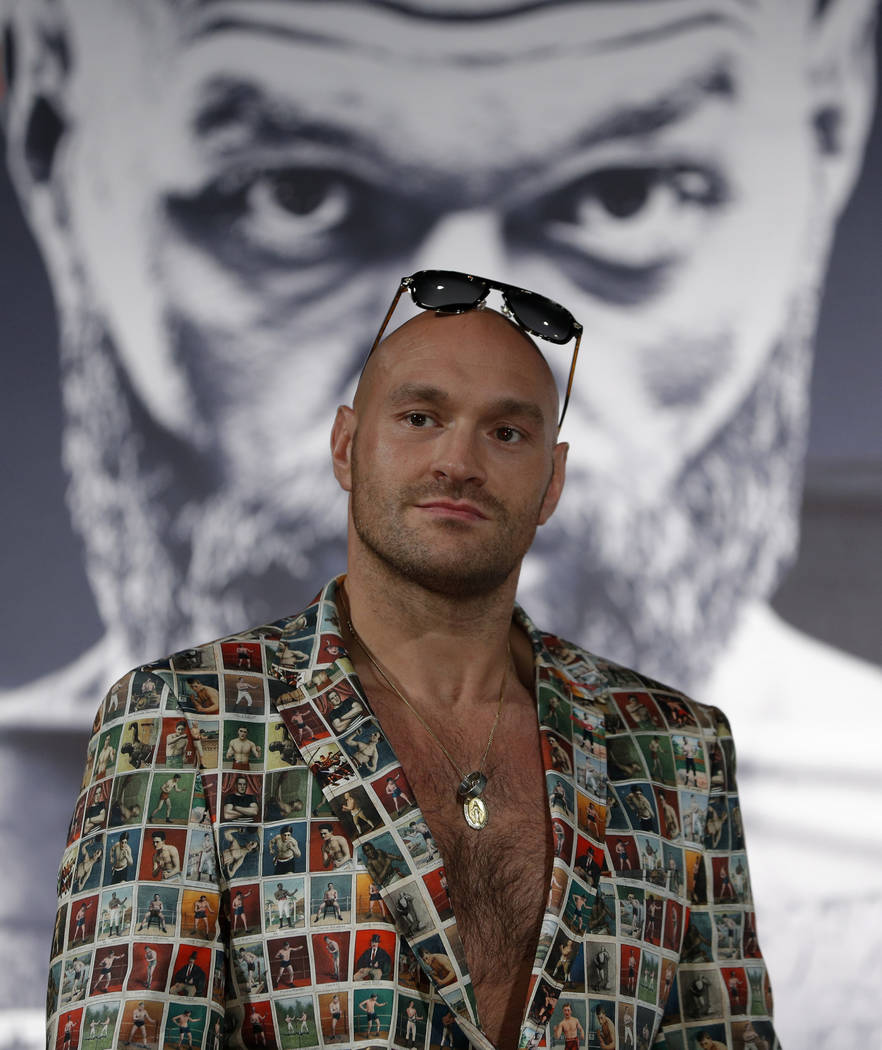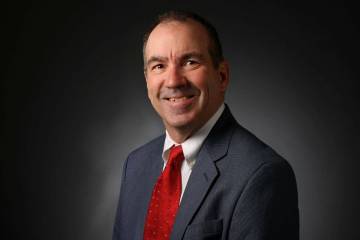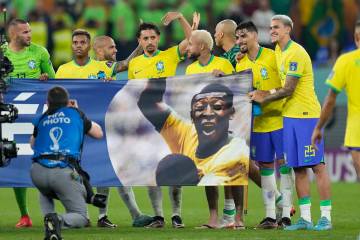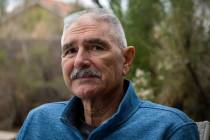Tyson Fury looks to conquer heavyweight division, mental demons
They are supposed to be the baddest men on the planet.
History tells us heavyweight champions should be bold, brash and braggadocious. They should be big men with even bigger personalities.
They should be like John L. Sullivan in the movies. They should stroll into a cocktail party, top hat on head, chest out to there, proclaiming they can lick any man in the world.
They should not be subject to foibles and fallibilities that affect mere mortals.
They should not be prone to deep depression after becoming the WBA champion, the linear king of fisticuffs — the man who beat the man who beat the man who beat the man, ad infinitum. What Tyson Fury became when he ended Wladimir Klitschko’s nine-year reign atop the division by stunning decision in 2015.
Fury, a big man (6 feet 9 inches tall) with an even bigger personality, serenaded his wife in the middle of the ring with an Aerosmith song on that night.
Shortly thereafter, he contemplated suicide by driving his sports car into a bridge abutment.
“Think of the most unimaginable place you could ever be and times that by 10, and that’s where I was,” said the 30-year-old Briton after arriving in Las Vegas to face Tom Schwarz of Germany in what is supposed to be a tuneup fight at the MGM Grand Garden on Saturday.
Lifelong struggle
Fury said he had been there before, although probably not at times 10.
“I’ve always suffered with anxiety and depression, my whole life,” said Fury, alternating between lighthearted repartee and solemn introspection during a chat with reporters at Top Rank Inc. headquarters. “I was very good at keeping it separated from my professional life.”
But after he upset Klitschko and became champion, his demons trapped him in a corner. This time, he couldn’t punch his way out.
“All I ever wanted to do was to climb Everest, and once I reached the pinnacle, there was no more to motivate,” Fury said. “I ain’t motivated by money, I’m not motivated by fame or legacy. No interest. So after I beat Klitschko, that’s the only thing (life) could offer me, three things I didn’t care about.”
Fury, who was raised by a Gypsy family in England, spiraled out of control. He said he was drinking every day and began to take recreational drugs. His weight ballooned to more than 400 pounds.
If he could just get back in the gym, he thought he could get healthy. But it’s hard to get back in the gym when you can’t bend down far enough to tie your shoes.
He looked at himself as if through a broken mirror.
“This is a man that could run 20 miles at any moment,” Fury said, “and to be in this stage of my life at 27 years old, out of shape as I could possibly be and as low as I could ever be, I wanted to die on a daily basis.
“I’m feeling worthless. I’m feeling like I didn’t have anything to live for anymore. I was depressed.”
There would be no rematch against Klitschko.
Seeking professional help
“If I would have even considered taking that rematch with Klitschko, I’d probably have brain damage by now,” Fury said about forfeiting his titles.
“When you have depression, mental health problems, when you keep it in, it’s like having a bottle of champagne with a cork in it. Eventually it’s going to go boom. But if you took the cap off slowly, then it wouldn’t explode.”
Fury said he sought professional help. He also said he’s not out of the woods yet. He still takes the cap off slowly every day.
“I quickly learned I wasn’t the only person suffering with the problems,” he said. “And instead of it embarrassing me and being shameful for me to come out with this, it’s helped other people. It’s inspired people to turn their lives around as well.”
Fury, who uses music to motivate and express what he’s feeling, turned to the Eagles’ “Hotel California” to explain the place he’s in now.
“There’s a really good verse in there that says you can check out any time you want, but you can never leave,” he said. “That’s mental health. It will never leave you alone; you never defeat it; it will stay with you until the day you die.”
During the 30-minute interview, Tyson Fury, the big man with the big personality, barely mentioned Tom Schwarz. It wasn’t so much he was underestimating his lightly regarded opponent. It just seemed he had a much bigger battle to fight.
Contact Ron Kantowski at rkantowski@reviewjournal.com or 702-383-0352. Follow @ronkantowski on Twitter.
Fight night
Who: Tyson Fury vs. Tom Schwarz, heavyweights
When: 7 p.m. Saturday
Where: MGM Grand Garden
Tickets: Starting at $104 at axs.com
TV: ESPN Plus
Odds: Fury -2,500; Schwarz +1,000, per William Hill
Fists of Fury
A look at heavyweight boxer Tyson Fury, who fights Tom Schwarz on Saturday at the MGM Grand Garden:
Age: 30
Birthplace: Wythenshawe, Manchester, England
Record: 27-0-1 (19 knockouts)
Major fights: Won WBA heavyweight championship with unanimous decision over Wladimir Klitschko, Nov. 28, 2015; fought WBC champion Deontay Wilder to split draw, Dec. 1.



